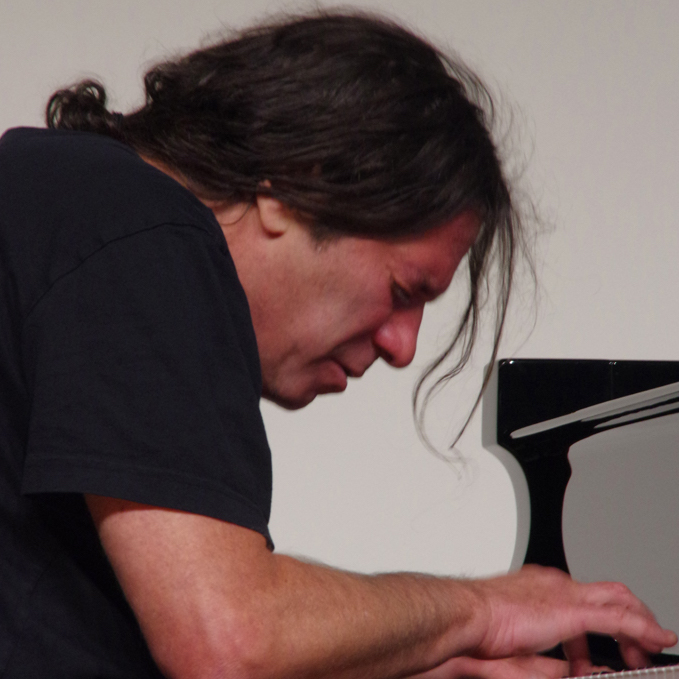
To compare John Blum to his forebears is so obvious that it is almost too transparent. Too easy and effacing to both him and the music that he so loves and creates. For John, whom I’ve known for some 15 years now and who’s gigs I’ve experienced quite a bit over that expanse of time, music is an extremely personal thing. Because of this, he has never been comfortable trying to promote or market his music. He is one of the most modest, and, career-wise, as well as human-wise, one of the least aggressive people I know.
Although the uniqueness of John’s music speaks for itself, even the casual listener can easily discern it is steeped in history. He states in a recent interview: “While I have listened to and learned from many players, it would be impossible to specify or compare their degree of influence on me” and claims that like many others, he started out playing jazz and believes that the music he plays now is a” continuation of that tradition and that it is not simply an offshoot of the free-jazz scene.” And I whole-heartedly agree.
Among those he readily admits have inspired his music are the likes of James P. Johnson (that rolling barrel-house sound), Monk (those spacious intervals) and Bud Powell (that lyrical speed).
John Blum, for all the years I have known him, has never once wavered from his convictions and commitments to the music. Has never once veered off course or sold out. Has never once backed down from the challenge to create sound within the most grueling arenas and difficult and under-acknowledged of art forms. And as he himself puts it “In the end, I play piano because I love music, and this is what I want to do with my time. I practice so that I can express my ideas when inspiration comes.” Through his struggles in gaining acceptance for his music Blum has learned to understand the difficulty in supporting himself through the thing he treasures most in life and this resignation to reality has only served to strengthen both his resolve as well as his art.
There’s a celestial bridge we must all cross in order to beget music in its purest and most radical form. Blum helps us to cross that bridge. With our eyes closed we teeter back and forth as we walk where fences, windows, panels are no longer barriers but doors to the world that has been born, created out of the strength and courage to continue one’s art in a world full of shams.
Steve Dalachinsky, NYC 5/31/09